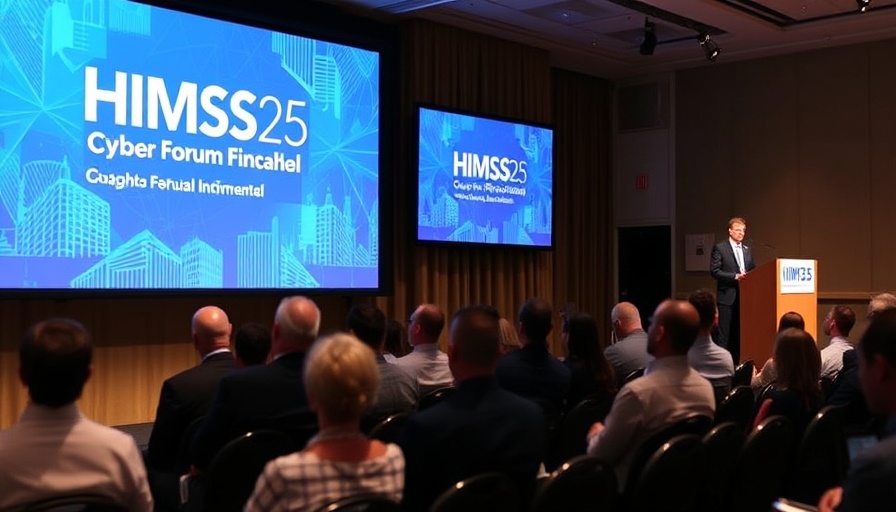
HIMSS25 Cyber Forum: Catalyzing Industry Engagement for Cybersecurity
LAS VEGAS – At the HIMSS25 Healthcare Cybersecurity Forum, Chris Tyberg, chair of the Healthcare and Public Health Sector Coordinating Council (HSCC) Cyber Working Group, made a clarion call for greater involvement in the healthcare industry's efforts to enhance cybersecurity. Speaking to attendees, Tyberg emphasized the need to transition cybersecurity from a critical state to a more stable condition, highlighting the importance of robust participation across the sector.
The Need for Collective Action
As Tyberg articulated, the pace of technological change brings with it an ever-evolving landscape of security threats. In his remarks, he stated, "We live in a world where technology changes in a matter of hours or overnight," urging the audience to collectively confront these challenges. Underlining the point, he referred to the HSCC's creation of 28 free resources aimed at improving cyber resilience across healthcare organizations, which points to the significant strides taken to bolster cybersecurity resilience.
Addressing Cyber Resilience
The concept of cyber resilience is critical to patient safety. Tyberg shared a four-pillar approach at the core of HSCC's strategy, starting with equal access to healthcare security resources. He identified a gap in representation, noting the absence of small- to medium-sized healthcare providers at the event, which prompted a commitment to further outreach efforts to ensure inclusivity in efforts to enhance cybersecurity.
Future Implications for the Healthcare Sector
Looking ahead, Tyberg cautioned that without proactive steps, the healthcare sector might find itself in the same precarious position in 2030 as it is now. The new HSCC Academic Partnership aims to address workforce shortages in cybersecurity through educational initiatives, thereby building a stronger foundation for healthcare systems.
Creating an Organizational Culture of Cybersecurity
The forum also featured sessions focused on building a culture where cybersecurity is paramount. Most institutions have restructured their cybersecurity frameworks to establish a best-practice environment. By including real-world lessons from recent cyber incidents, Tyberg reinforced the idea that a preventive approach is insufficient; healthcare organizations need to develop strategies for rapid recovery from cyber threats.
Equity in Cybersecurity Access
This year's discussions made it clear that advancing cybersecurity isn't just about technology—it's about ensuring equitable access across demographics and organizational sizes. Tyberg's immersive approach includes wider accessibility to expertise and immediate responses to emerging threats.
Insights from Peer Experts
Industry experts, including leaders at UnitedHealth Group and Intermountain Healthcare, contributed to rich dialogues on critical practices for ensuring data integrity and privacy. For instance, sessions delved into technologies such as artificial intelligence that are transforming cybersecurity protocols. Experts highlighted the importance of cooperation among various stakeholders within the healthcare ecosystem to foster a secure collaborative environment.
Conclusion and Call to Action
As cybersecurity remains a preeminent concern, engagement at every level—from large healthcare systems to smaller organizations—becomes ever more essential. The HIMSS25 Cyber Forum serves as a reminder that the race against cyber threats demands unwavering commitment and collaboration. Industry leaders are encouraged to dive deeper into the available resources, encourage participation in upcoming forums, and instill a culture of vigilance concerning data security.
 Add Row
Add Row  Add
Add 




 Add Row
Add Row  Add
Add 

Write A Comment